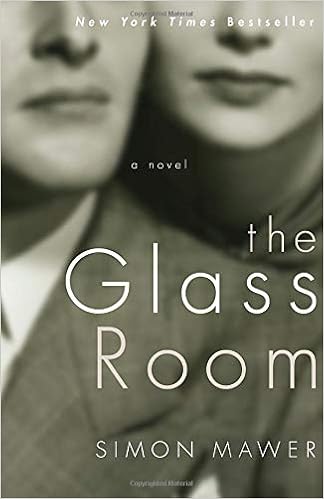Happy Wednesday, one and all! This August I wanted to take a moment to share books recommended to me by you, my wonderful fellow creatives.

The genre tastes here will vary widely, so bring your sparkling water to cleanse the palate between sips. Let’s begin with…
What does a reader experience in those opening pages, and what lessons can a writer take away in studying but a few paragraphs? Should I be reading these books after long days of grading? Let’s find out!
If you do not see the audio player above, you can access the podcast here.
This book was recommended to me by indie author Michael Steeden. I do hope you check out his beautiful blog and books!
If there are any stories you would like to recommend for sipping on this podcast, let me know in the comments below! I’d also welcome reading any indie authors’ own stories. Let’s all enjoy different genres and styles of storytelling throughout the year, shall we? xxxxxx
Read on, share on, and write on, my friends!



⭐️⭐️⭐️⭐️⭐️
LikeLike
My favoured writer; my most favoured book. Thank you for thinking of both writer and ‘me’. Regards, The Old Fool
LikeLiked by 2 people
And thank you for sharing it with me, Master Steeden! It’s been a long time since a book made me cry, but this one did it. xxxxxxx
LikeLiked by 2 people
My lady, you have a great voice and such a welcoming way.
LikeLiked by 2 people
Thank you so much! It has been a joy to enjoy the prose being heard aloud.
LikeLiked by 2 people
Great reading Jean. The book intrigued me to learn more about it. According to Wikipedia (The Glass Room) the daughter of the original family was less than impressed by it. -PS you did say Glass Room- or at least I think you did! Talking of Glass have you read Gunter Grass’ (well almost like Glass) The Tin Drum?
LikeLiked by 2 people
Oh dear. Well, family isn’t always going to like what is written. And I do hope I said Glass Room! Honestly, my mind is gets sooooo frazzled during every term’s finals period. Blech! I’ve not read The Tin Drum, but I could give it a go. What made you think of it?
LikeLiked by 1 person
Probably reading the precis of the Glass Room on Wikipedia. The Tin Drum appears to explore many of the same themes- the displace of people and people’s psyches during the Late 30s and the rise of Nazi fascism across Greater Germany (for that think of the old Austro Hungarian Empire), especially what the daughter said about not only her home being stolen but now also her story. It put me in mind of the Launders in Isherwood’s Goodbye to Berlin. I think part of the Glass Room encapsulates the removal of people, their history and identity – not only during Nazism, but what went on earlier as evidenced by Kafka, Hesse and Mann, and what was to come in the Stalinist purges.
LikeLiked by 1 person
Oh, the daughter’s point definitely raises that common writing problem with nonfiction–ANY time we include characters who are not us, are we taking their stories? It’s so hard to work out.
LikeLike
Love listening to your voice. Great choices too.
LikeLiked by 1 person
Thank you! I’m excited to keep exploring different stories and sharing them. It’s been such fun to hear different kinds prose, storytelling styles, voices…
LikeLiked by 1 person
I read this at the weekend, but then had to rush off before commenting (you know how it is). An intriguing story, beautifully introduced. 🙂
LikeLiked by 1 person
I sure do know, Chris. I’m just excited to FINALLY have a little time between terms to work on a spooky short to send out this fall. Fingers crossed and turn thrice widdershins I get it done in time! Maybe I can share it here for input…
LikeLiked by 1 person
I’d like that!
LikeLike